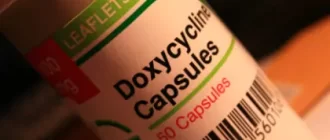Have you ever indulged in a delicious bowl of ice cream, only to find yourself coughing uncontrollably? Believe it or not, this is a common experience for many people. The sensation can range from an irritating tickle to a full-blown coughing fit. But why does this happen? In this blog post, we’ll explore the science behind why people cough when they eat ice cream and what you can do to prevent it. So, grab a spoon and get ready to dive into the mystery of the ice cream cough!
1. Cold foods can irritate the nerves in your digestive tract
Cold foods such as ice cream and ice water can irritate the nerves in your digestive tract, leading to coughing and discomfort. This happens because the cold temperature can cause a rapid change in the temperature of your throat, which triggers the nerves to send signals to your brain.
Consequently, your throat may constrict or spasm, leading to coughing, particularly in those with underlying conditions, such as asthma.
It is essential to note that this coughing reflex is not harmful in most cases, and the discomfort usually subsides quickly. However, those with chronic or severe coughing should seek medical advice to rule out any underlying respiratory or digestive issues.
2. Dairy sensitivity can cause coughing after eating
Another reason why a person may experience coughing after eating ice cream is due to their sensitivity to dairy products.
Some individuals have an immune response to the proteins found in milk and its derivatives, which can lead to coughing, wheezing, or even skin reactions. This sensitivity triggers the production of phlegm, leading to coughing fits after consuming dairy.
Additionally, a dairy allergy can cause breathing and stomach problems similar to asthma symptoms. In some cases, dairy products can also make mucus thicker and harder to swallow, leading to irritation and subsequent coughing.
Therefore, if a person experiences persistent coughing after eating ice cream or any other dairy item, it is advisable to consult a doctor and get a proper diagnosis before consuming any more dairy products.
3. Phlegm accumulation can trigger coughing when eating cold foods
When someone eats cold foods, such as ice cream, it can trigger the accumulation of phlegm in their throat. This buildup of mucus can then lead to coughing.
As mentioned in the previous sections, dairy-based products are also known culprits in phlegm production, which can exacerbate the issue. Additionally, sudden exposure to extreme cold can cause bronchospasms, which contributes to coughing after eating ice cream.
Saliva mixing with ice cream can create a thicker and more mucus-like secretion, further exacerbating the cough. It’s important to note that coughing after eating ice cream is typically not harmful, but it can be inconvenient and uncomfortable.
If the coughing persists or is accompanied by other symptoms, it’s recommended to consult a healthcare professional to rule out any underlying issues.
4. Bronchospasm can be caused by sudden exposure to extreme cold

Bronchospasm, or the tightening of the airways in response to sudden exposure to extreme cold, may be a potential cause of coughing when eating ice cream. This reaction is the body’s natural defense mechanism to prevent the lungs from being damaged by the cold air. Cold air contains less moisture, which can dry out the airways and cause irritation.
In addition, ice cream can come into contact with the trachea, further irritating the airways. Saliva and ice cream can also mix to create a thicker, more mucousy secretion, making it harder to breathe.
While coughing after eating ice cream due to bronchospasm is not harmful, it can be unpleasant and uncomfortable. It is important to note that this is not the only potential cause of coughing when eating ice cream, and individuals should speak with a healthcare provider if they experience persistent coughing or other symptoms.
5. Ice cream comes into contact with the trachea, causing coughing
When you eat ice cream, it travels down your esophagus and comes into contact with your trachea, which can cause coughing. This happens because cold is a known trigger for asthma, and sudden exposure to extreme cold can lead to bronchospasm.
Additionally, if you already have a sensitivity to dairy, this could exacerbate the coughing after eating ice cream. Some people may also have allergies to milk products, which can cause coughing and other symptoms. Furthermore, the combination of saliva and ice cream can create a thicker, more mucousy secretion, increasing the likelihood of coughing.
However, it’s important to note that coughing after eating ice cream is usually not harmful and can often be managed through avoidance or taking measures to reduce sensitivity. Contrary to popular belief, there is no concrete evidence that ice cream worsens coughing or cold symptoms.
6. Saliva and ice cream can create a thicker, more mucousy secretion
The combination of saliva and ice cream can create a thicker, more mucousy secretion, which can irritate the back of the throat and trigger coughing. This explains why some people cough after eating ice cream.
However, this is not a harmful reaction in most cases. Dairy sensitivity, phlegm accumulation, and allergies can also cause coughing when eating ice cream. Cold foods can irritate the nerves in the digestive tract, and sudden exposure to extreme cold can cause bronchospasm. Breathing in particles from ice cream can also irritate air passages.
However, the belief that ice cream worsens a cough is a myth. While coughing after eating ice cream may be unpleasant, it is not harmful and usually subsides quickly. The key is to pay attention to your body’s reactions and avoid triggers that cause discomfort. Drinking hot beverages can also help loosen phlegm and alleviate coughing.
7. Allergies can also cause coughing when eating ice cream
Allergies to certain ingredients in ice cream can also cause coughing after eating. People who are allergic to dairy protein, for example, can experience an allergic reaction that leads to coughing, along with other symptoms such as hives or difficulty breathing.

Coughing When
Eating Ice Cream
Additionally, some individuals may be allergic to other ingredients in ice cream, such as nuts or artificial flavors, which can also cause coughing after consumption.
It is important to identify the specific allergen causing the reaction and avoid consuming it in the future. While coughing after eating ice cream due to allergies can be uncomfortable, it is typically not harmful and can be alleviated by over-the-counter antihistamines or prescribed allergy medication. It is always recommended to consult a healthcare professional if a severe allergic reaction occurs.
8. Breathing in particles from ice cream can irritate air passages
Breathing in particles from ice cream can be a potential cause for coughing after consuming it. Ice cream consumption may result in particles that can enter air passages and irritate them, leading to coughing. This can be particularly true for individuals who are sensitive to dairy products or have allergies that can exacerbate the coughing reflex.
Moreover, saliva can combine with the ice cream particles and create a thicker and more mucousy secretion, further worsening the situation. In some cases, sudden exposure to extreme cold can also trigger bronchospasm, leading to coughing. Although coughing after eating ice cream is not harmful in most cases, it can be uncomfortable and disturbing for some individuals. Therefore, it is advisable to avoid consuming ice cream if it consistently leads to coughing.
9. Coughing after eating ice cream is not harmful in most cases
While coughing after eating ice cream can be uncomfortable and annoying, it is not harmful in most cases. As discussed previously, there are various potential causes of coughing after consuming ice cream, ranging from irritation to phlegm buildup to bronchospasm.
However, in the vast majority of cases, the cough will subside relatively quickly and without any lasting effects. It is important to note that if coughing after eating ice cream becomes chronic or is accompanied by other symptoms, such as difficulty breathing or chest pain, it may be indicative of a more serious condition and should be evaluated by a healthcare professional.
Otherwise, individuals who experience occasional coughing after consuming ice cream can rest assured that it is likely a benign and temporary reaction.
10. The belief that ice cream worsens a cough is a myth.
Despite the common belief, consuming ice cream doesn’t necessarily worsen a cough. As mentioned before, ice cream’s cold temperature could irritate the digestive tract’s nerves, resulting in coughing for some people. However, this irritation is temporary and not harmful in most cases.
Additionally, while dairy products like milk can make phlegm thicker and more irritating to the throat, it doesn’t mean that ice cream will do the same. In fact, some people find relief in eating plain-flavored ice cream when dealing with a sore throat or cough. It’s essential to note that if someone has a dairy allergy or sensitivity, their body’s reaction could cause coughing. Nonetheless, it’s a myth that everyone who eats ice cream will inevitably worsen their cough.
About the Author
Reyus Mammadli is the author of this health blog since 2008. With a background in medical and biotechnical devices, he has over 15 years of experience working with medical literature and expert guidelines from WHO, CDC, Mayo Clinic, and others. His goal is to present clear, accurate health information for everyday readers — not as a substitute for medical advice.







